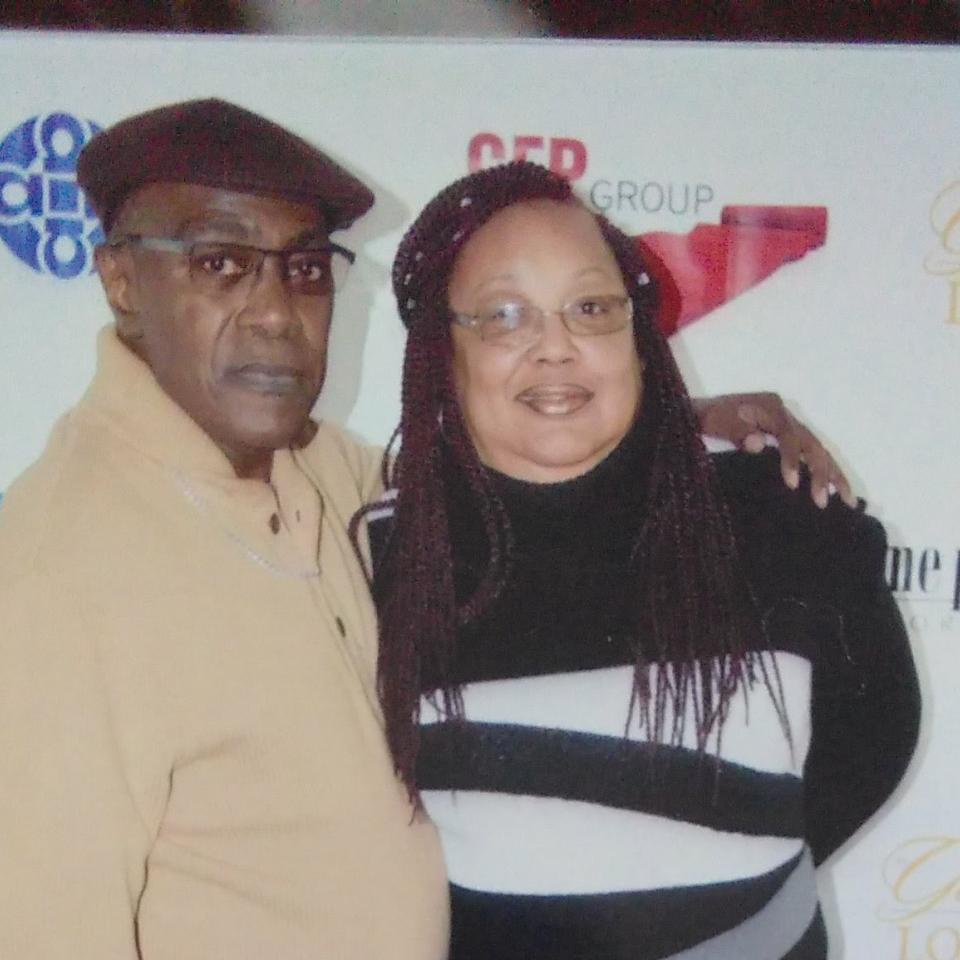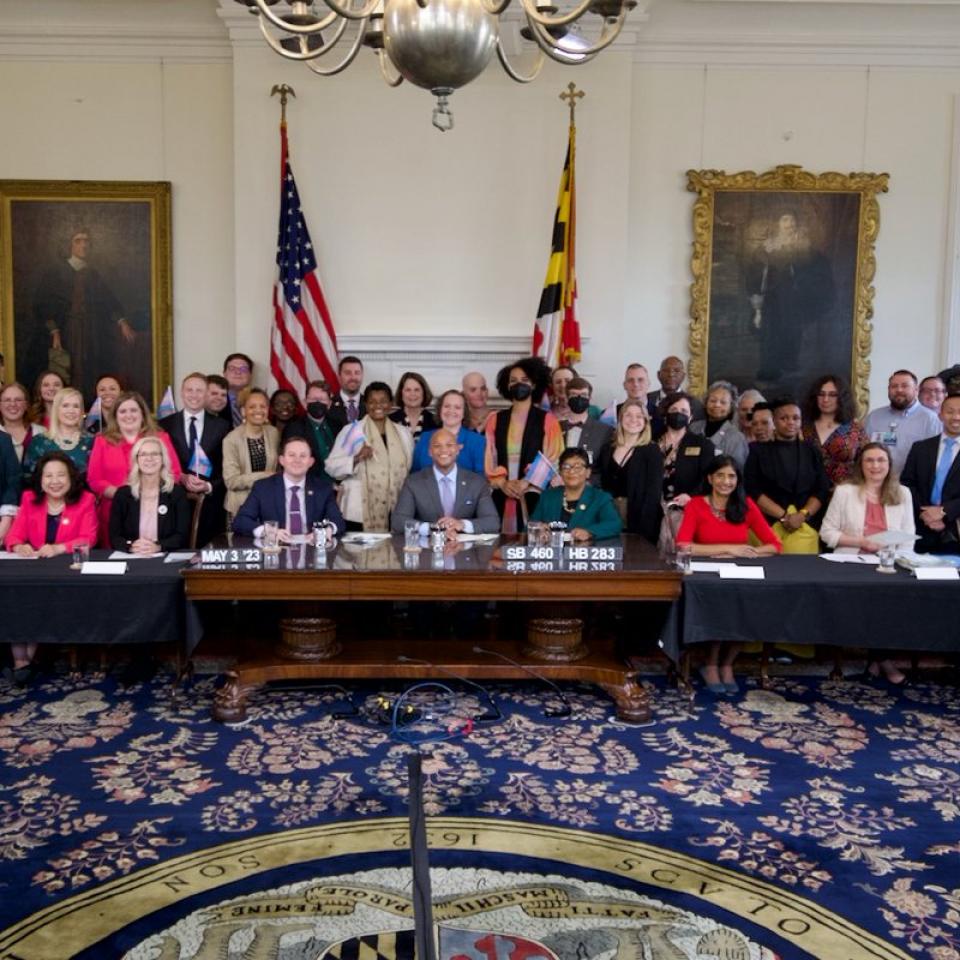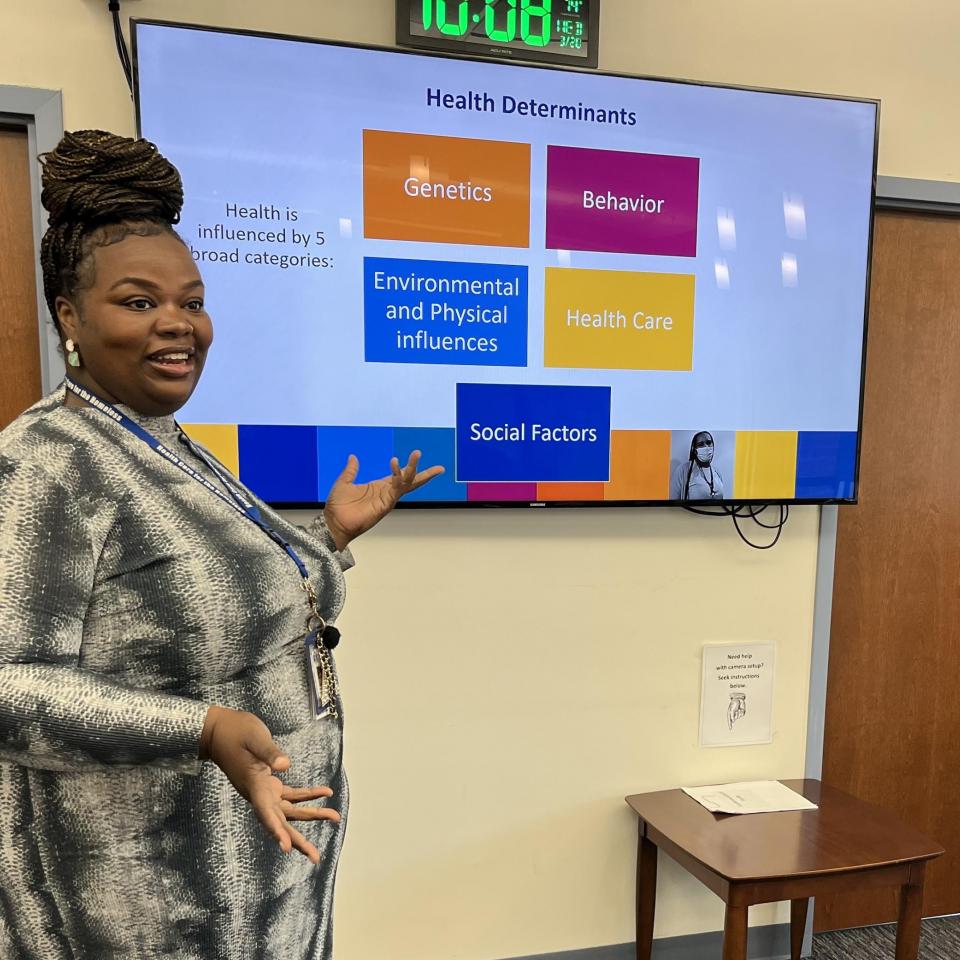Client storytelling is a staple of the nonprofit business model, ever present in advocacy, clinic tours, fundraising—and news articles like the one you are reading right now.


07.23.21
Joseph Tayler has been trying to catch up for most of his life.
As a kid, his family moved a lot and each new school left him feeling perpetually a step behind. “I’ve always been someone who was curious about information and knowledge,” he remembers. “I just didn’t have people who I could talk to about it.”
Embarrassment, not school, spurred him to learn how to write his last name at 12 and to read at 14. He became a voracious reader and could remember and repeat things he’d heard just once. Even so, by junior high, he dropped out.
It was only after being sentenced to life in prison as a 22-year-old that Joseph got his GED and a college degree. In some ways, prison offered more opportunity than the chronically disinvested, West Baltimore neighborhood where he grew up. “I got a lot out of prison,” he reflects over the phone. “I ducked AIDS, the crack epidemic and senseless murders. I beat my drug addiction. I got a pretty good education in college. And I met my wife.”
At the same time, Joseph spent 43 years of his life surrounded by fences and guard towers. Other people controlled his movement: telling him when to go to bed, when to wake up and whether he could go to the bathroom. Over those decades, he couldn’t buy a home, build wealth or a career. And he saw people die senselessly in prison, too.
“It’s barbaric. They throw you in jail and then they do nothing to try to rehabilitate you,” he says, highlighting the lack of empathy in the criminal justice system. “It seems like one of the qualifications for the job is to be uncaring.” When it comes to health, he adds, “The kind of medical treatment I get now, I couldn’t have gotten in jail. It wouldn’t have been in the budget. They lose so many guys for medical reasons. Had they been home, they wouldn’t have died.”
At one of our recent Community of Practice on Homelessness conversations, Tara Huffman of Open Society Institute reiterated the punitive approach of our current criminal justice system, explaining, “From our birth, we have been fed a steady diet of ‘this is what justice looks like.’ If you’ve never been to jail, from where you sit, everything seems to be working okay.”
Since Joseph’s sentencing in 1972, the U.S. has continued to incarcerate more people than any nation in the world. It’s well documented that Black men like Joseph are disproportionately criminalized, incarcerated and given more severe sentences compared with their white counterparts. And the link between incarceration and homelessness has gotten even stronger.
Over the years, Health Care for the Homeless has worked with clients to advocate for criminal justice reform policies, including legislation to streamline expungement, provide people in Maryland prisons access to health care, decriminalize drug use, and decriminalize drug paraphernalia (a harm reduction bill which Governor Hogan callously vetoed this spring).
Yet we, as an agency and community, have a lot of work ahead to confront the broader systems at play—and to reimagine justice through the lens of eliminating structural racism.
Joseph and 200 other “lifers” took plea bargains to lower their sentences after elements of their trials were deemed unconstitutional by a higher court. And in 2014, he walked out of prison doors and reunited with his wife—who extended a rare lifeline for someone with a criminal record: housing.
More than once, he repeats that he hasn’t had a bad day in the seven years he’s been home. “I’ve had some that didn’t go according to plan—but it can’t be worse than being in a cage.”
Watch our two-part Community of Practice conversation about restorative justice
More Recent News
The Trans Rights Advocacy Coalition (TRAC) has been the driving force in championing trans rights policy changes in Maryland. Due to stigma and structural discrimination, transgender people—particularly transgender people of color—experience high rates of homelessness. Following the implementation of the Trans Health Equity Act in January, we talked with TRAC leadership about their work and community.
Since starting in January 2022, REI Health Specialist Arie Hayre-Somuah, LMSW, MPH has worked with our clinical teams to identify health disparities and move us closer to health equity. This year, she is turning her focus to the topic of health literacy.
We are delighted to announce the promotion of Hanna Mast from Senior Communications Manager to Director of Communications. Get to know more about her work in the Q&A below!


